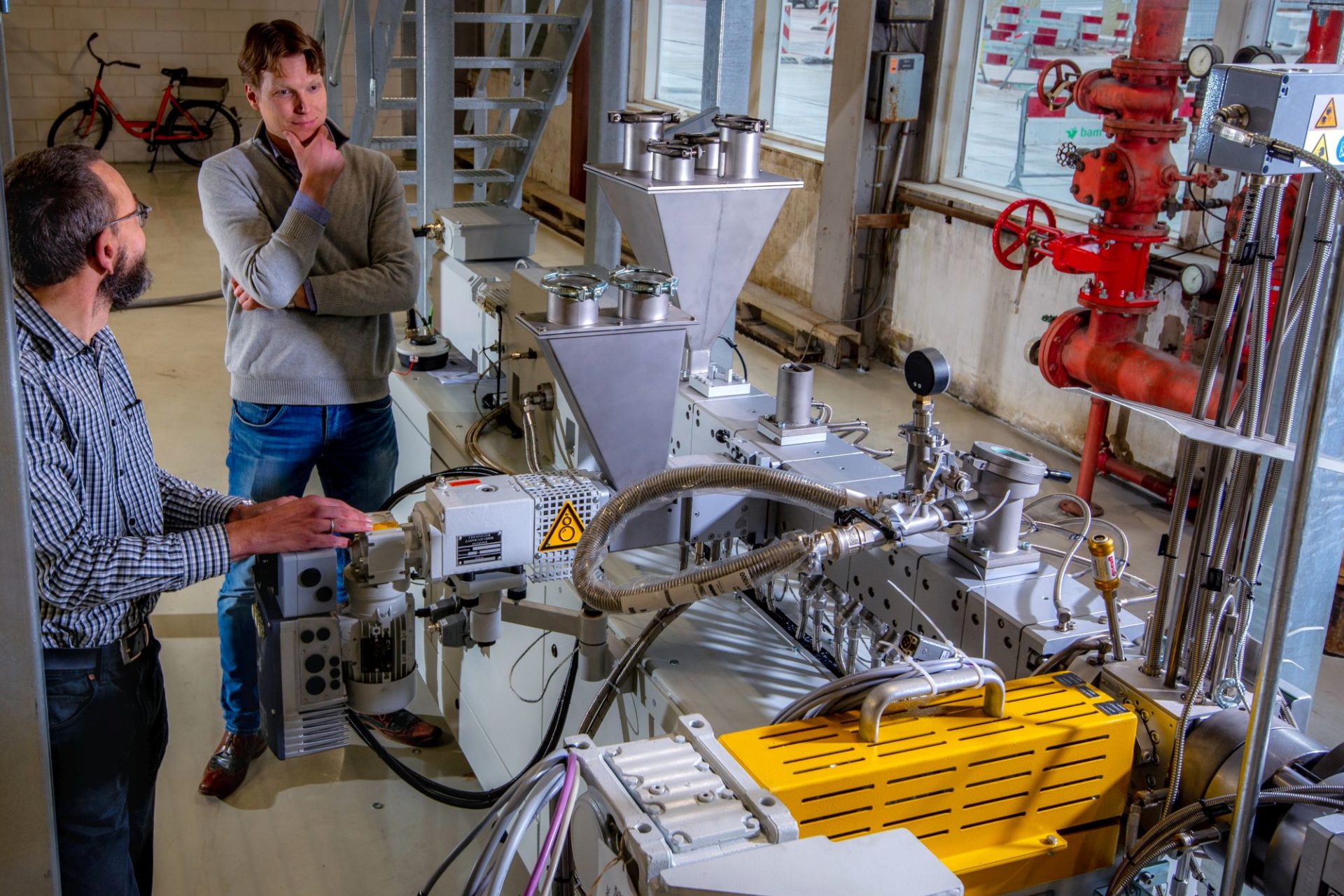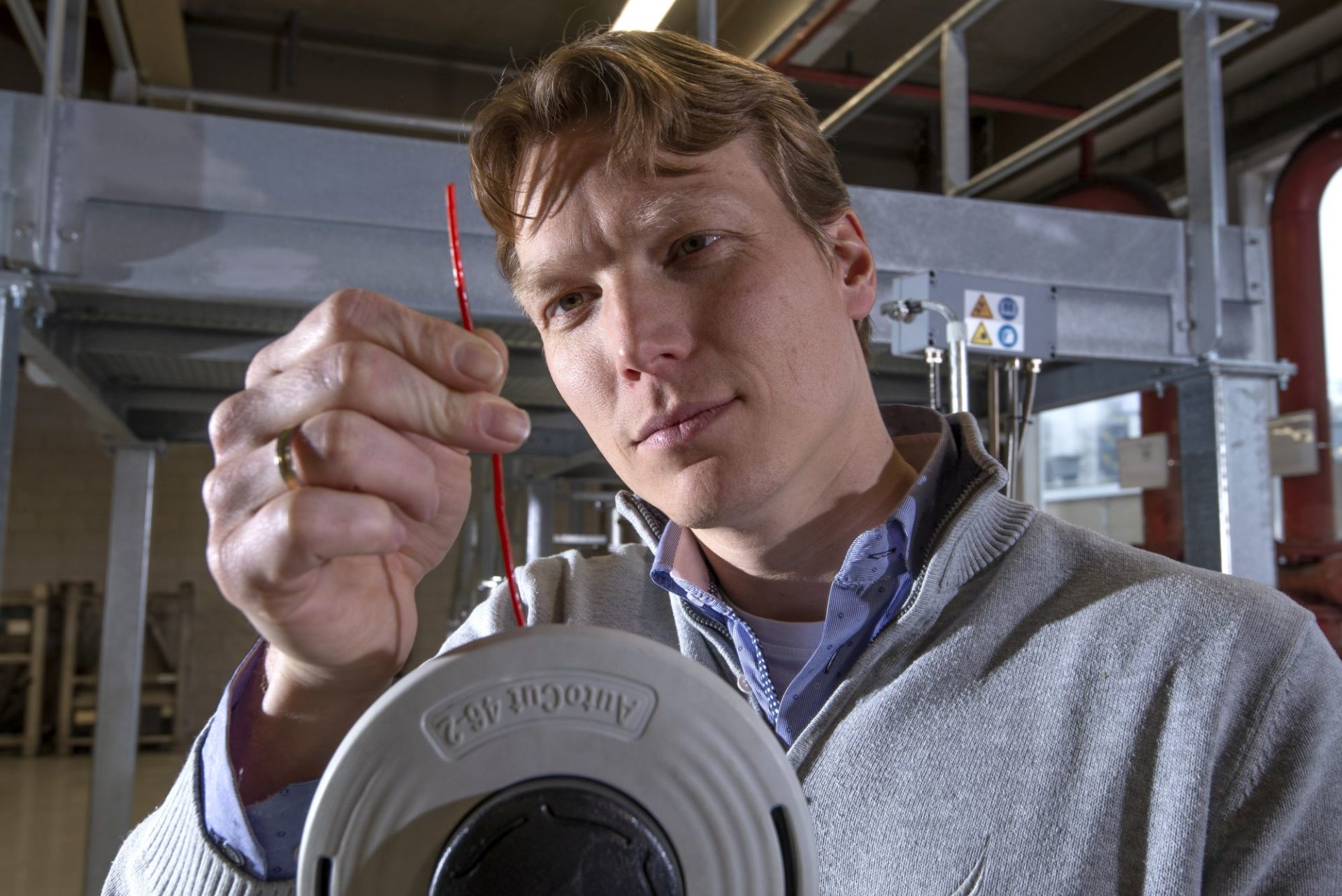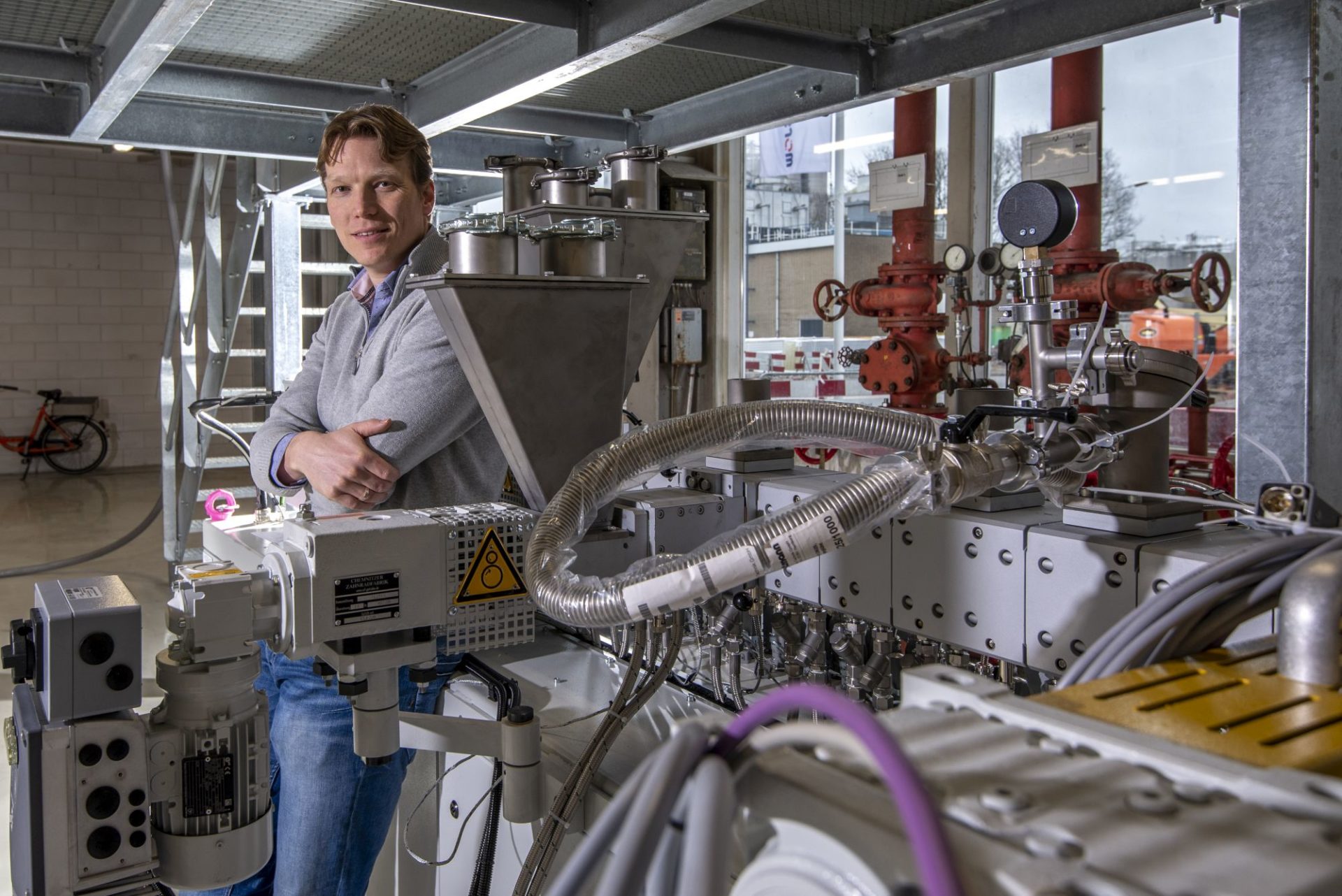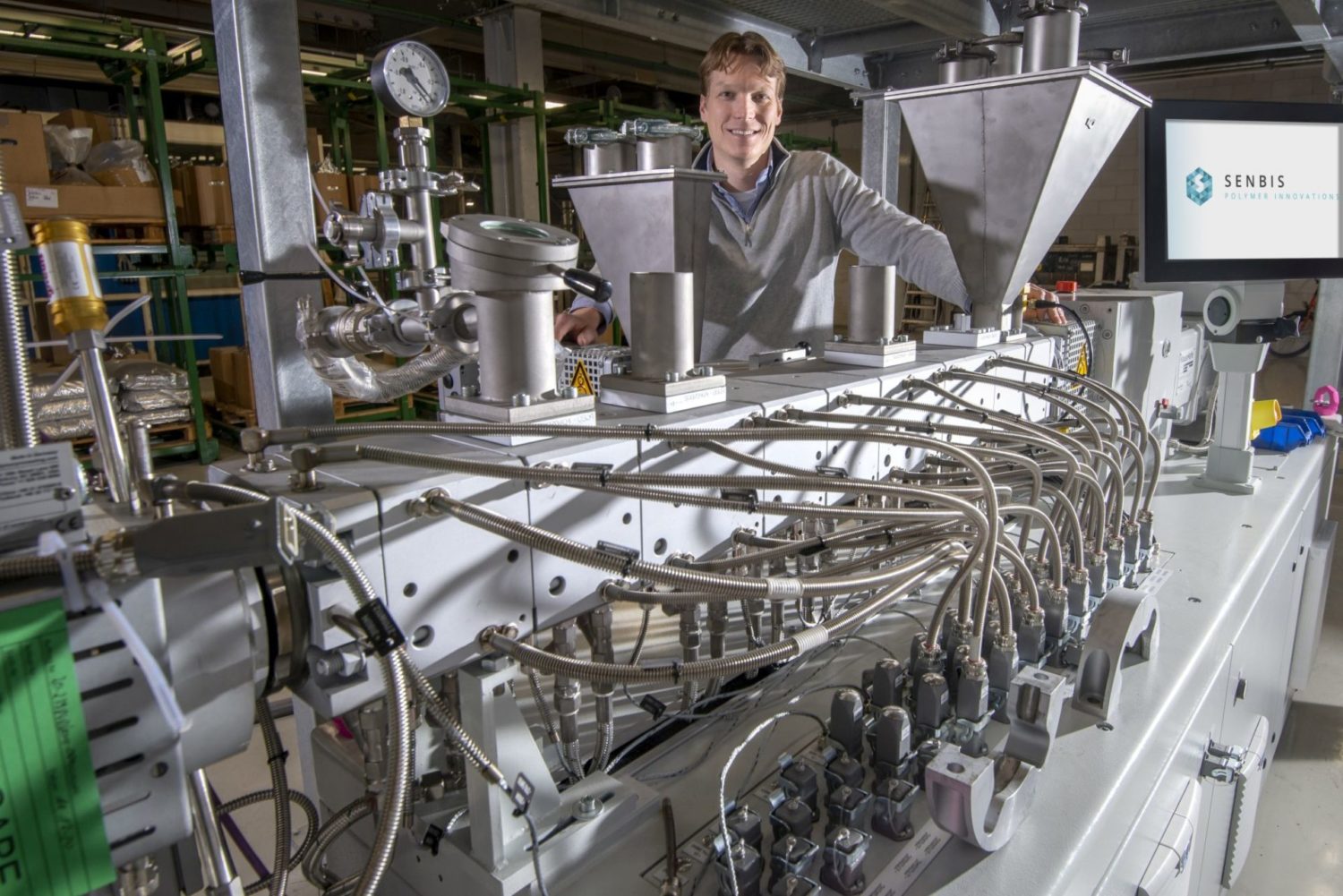The gateway to a world of new and sustainable plastics is invitingly wide open, but there are still some obstacles behind the gate. Plastic expert Senbis from Emmen, for example, makes products that the world is waiting for. And yet it is often difficult to get sales going.
More companies with a strong research branch are familiar with this problem: they are too far ahead of the market and in hindsight may have paid too little attention to marketing & sales. Gerard Nijhoving, managing director of Senbis, mentions another reason why, among other things, he still has trouble getting rid of his biodegradable granules for artificial turf, while every soccer player wants a clean artificial turf: regulations and government requirements. 'It would help if the government asked for sustainable products in the requirements for the specifications, because now there is a missing incentive,' he explains. 'Because sustainable products are always more expensive and therefore are not chosen first.'

Sustainable plastics testing ground
It's a complex array of factors that companies like Senbis must plow and dredge through before they can make the world happy with their groundbreaking and sustainable nouveautés. Money, research and machinery, for example, are not unimportant either. Senbis knows all the obstacles and for that reason its subsidiary SPIC Facilities is investing 5.5 million to establish a living lab for sustainable plastics for which new pilot machines are being purchased immediately.
SPIC is Chemport Europe's Sustainable Polymer Innovations Cluster, within which education and companies have combined their strengths and knowledge. Gerard Nijhoving: "With SPIC Facilities, we are filling in the missing pieces of the puzzle of Chemport Europe's ecosystem. We now have an impressive range of machines, with which we have successive processes in the production of new materials available: from a few grams to trucks full.'
At SPIC through the lock of scaling up
SPIC is the key to industry growth. Every company has to go through the same lock of scaling up, but now does not have to keep buying the same machinery as the peer companies. The development of sustainable plastics can thus be accelerated and scaled up. Nijhoving: "We can now do our research much better. Some questions we couldn't answer until now because we had the knowledge but not the facilities.' The knowledge in the plastics cluster in Emmen is praised. The Getec park.Emmen, as Emmtec is now called, has a structure that is unique for Europe, because it is the only place in our continent where all conceivable facilities are together. The SPIC cluster has added value. Nijhoving: 'Our goal is to get the product and the process working as quickly as possible. That can be done here.'

'End user often opts for cheap'
Nijhoving says there was some hesitation about investing in these uncertain times. 'But we are convinced that the sustainability trend in the plastics sector is only going to get stronger,' he says. Society is going to demand it. But he adds: 'The consumer wants it, but as a producer of semi-finished products, Senbis is too far removed from that consumer to have any influence on it.'
And so we come back to the point we started this story with. Because Senbis sustainable products are less cheap, because they involve a lot of research costs and do not yet have large sales. But also because the often environmentally damaging plastics with which they compete are completely pulled apart in terms of price and quality: cheaper can't be done, better can't be done, and recyclable, ho. Nijhoving: 'It's a rat race to the bottom.' The end user still all too often opts for cheap. It is convenience. Sustainable products betray vision and principles in the buyer; the cheap alternatives reveal a lack of good will.
R&D is at the level of a multinational company
Senbis leans on two legs. The first is R&D services, or research and development. As a former research department of AKZO and Diolen, Senbis has both the facilities and the knowledge of an industrial multinational in that area. SMEs cannot possibly build that on their own. Indeed, most multinationals do not have the capabilities that Senbis has. On top of that now comes the availability of SPIC.
The second leg at Senbis is the production of sustainable and biodegradable plastics. That is where the biodegradable pellets come from, as well as the biodegradable string for the trimmer used by park services to maintain the grass. Similar rope can be attached under a fishing net pulled across the seabed when bottom fishing. The rope currently used, also called "fluff," causes widespread plastic pollution in the sea. So Senbis has an alternative. But why isn't it being used on a large scale yet? Nijhoving: "Our bio lint is more expensive than the current lint and there is no subsidy or regulation for the use of our sustainable alternative. In other words there is no incentive for change.'

Chimney must be smoking
Senbis, as a forerunner, is thus laying a path paved with risk. Nijhoving knows that better than anyone. 'That's why we can't tackle everything, because the chimney has to smoke,' he says. 'We often get the request to also include a certain product in our developments. If a customer does not want to pay for that research, we are very critical of that.'
This is why Senbis always chooses its own niche. For example, it permanently opts for the biodegradable plastics in products that have a high chance of ending up in nature. Nijhoving: 'Because then we deliver added value. We want to solve microplastic problems. We will be rewarded for that.'
Emmy Saimi-Roozeboom, Investment Manager of MKB Fonds Drenthe
'We often invest in something that needs to be scaled up. We certainly see the opportunities with Senbis. There is a business model and Senbis has shown it can do something. We are now on the eve of an expansion and by entering into this with venture capital, we hope to attract other financiers and investors as well.
It's a great story, interesting and fairly unique. We are now contributing to a firmer foundation of actually a new sector. The story is good, social and hits the mark. It provides work in the region, but environmentally Senbis certainly adds to it. And sustainability is ultimately in everyone's interest.
Answer 4 simple questions to quickly find out if you may qualify for funding through NOM.
